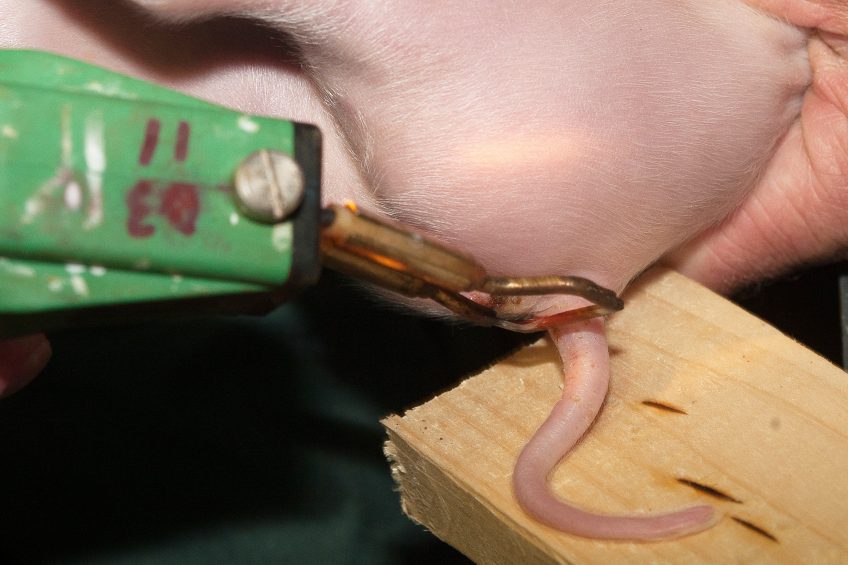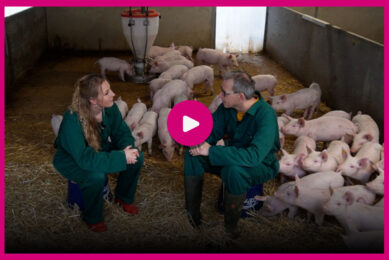Does tail docking hurt for piglets? The search continues

Research on pain caused by tail docking has so far shown that piglets do scream louder during tail docking, but so far it has proven difficult to establish whether tail docking also causes pain in the longer or shorter term.
That message was shared by researchers from Newcastle University, United Kingdom, in a new publication that was posted in Physiology & Behaviour.
Potential effects of tail docking
In their article, the researchers described that tail docking in pigs has the potential for evoking short- as well as long-term physiological and behavioural changes indicative of pain.
Nonetheless, they wrote, the existing scientific literature has thus far provided somewhat inconsistent data on the intensity and the duration of pain based on varying assessment methodologies and different post-procedural observation times. For that reason, the welfare researchers described 3 response stages (immediate, short- and long-term) through the application of vocalisation, behavioural and nociceptive assessments in order to identify changes indicative of potential pain experienced by the piglets.
Furthermore, the team evaluated the following procedural differences:
• Cautery vs. non-cautery docking;
• Length of tail removal.
Call energy and intensity
Sound parameters showed a significantly greater call energy and intensity exhibited by docked vs. sham-docked piglets.
Observations of general activity of the animals in a test situation failed to detect a difference among treatments up to 48 hours post-tail docking. Similarly, no difference in mechanical nociceptive thresholds indicative of long term pain was observed at 17 weeks following neonatal tail docking, the scientists reported.
Use of measures of vocalisation
The researchers concluded that the present results highlight the potential for the use of measures of vocalisation to detect peri-procedural changes possibly associated with evoked pain.
Nonetheless, activity and nociceptive measures failed to identify post-docking anomalies, suggesting that alternative methodologies need to be implemented to clarify whether tail docking is associated with short- and long-term changes attributable to pain experienced by the piglets.
The research paper was authored by Pierpaolo Di Giminiani, Abozar Nasirahmadi, Emma M. Malcolm, Matthew C. Leach and Sandra A. Edwards, attached to Newcastle University, United Kingdom











